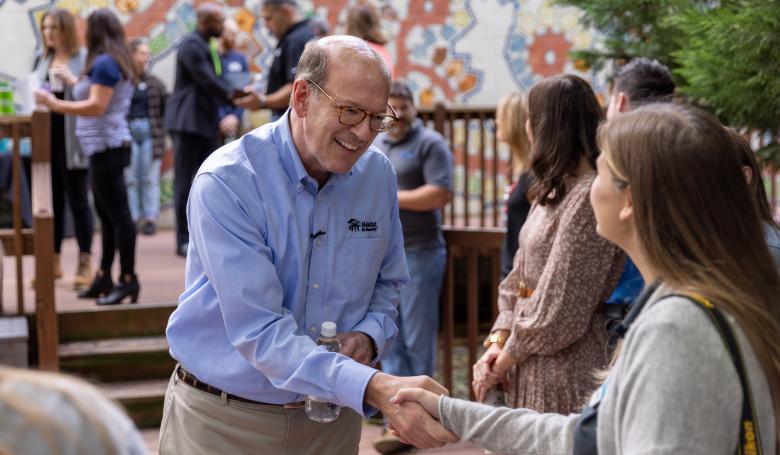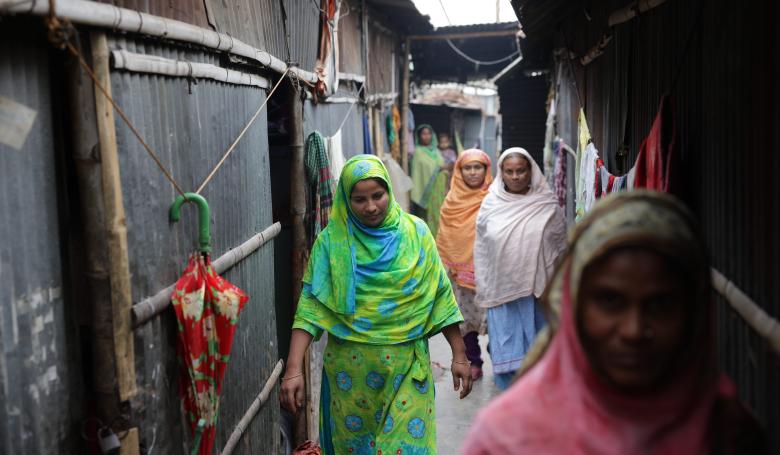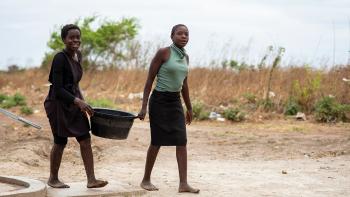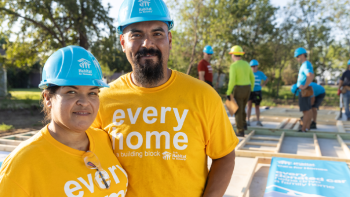
Habitat for Humanity’s highlights from the World Economic Forum
Photo credit — Copyright: World Economic Forum/Sikarin Fon Thanachaiary
The World Economic Forum partners with global leaders to catalyze significant positive change — unleashing initiatives, pioneering industry advancements, furthering economic innovations, and fostering projects and collaborations, all working toward improving the state of the world.
Habitat CEO Jonathan Reckford joined other leading experts during the annual meeting to give affordable housing a seat at the table.

Housing and climate change
As the climate crisis picks up pace, those without access to adequate, safe and sustainable housing are most at risk.
In an article for WEF, Reckford suggests three key strategies to help nations progress toward their climate goals and ensure those most vulnerable are put first:
- Recognize adequate housing as a priority in climate change action.
- Prioritize the most vulnerable by incrementally adapting climate-resilient homes.
- Invest in upgrading and greening informal settlements.
From solar home systems to green roofs and rainwater harvesting, sustainable, nature-based solutions can help conserve natural resources and strengthen climate adaptation efforts. When replicated at scale, these green initiatives reduce climate risks and protect the livelihoods of millions of households worldwide.
Optimism for housing solutions in 2024
Alongside other members of WEF’s Network of Global Future Councils, Reckford shared his enthusiasm for the opportunities in the affordable housing sector in 2024.
“Government leaders understand the critical relationship between housing and health, education and economic stability — not just for individuals but for strong communities,” Reckford writes. “And all levels of government are partnering with the private sector to help supply catch up with demand, especially for low- and moderate-income homebuyers and renters, which the market struggles the most to serve.”

Yes In My Backyard
Reckford also hosted and moderated a panel of multi-sector experts to talk about efforts to counteract Not In My Backyard, or NIMBY, which describes the actions that have halted development of projects from energy to housing to high speed rail across the globe.
Reckford says that many Americans agree that affordable housing is a good thing “as long as it’s not anywhere near where I live.”
“As a result, there is a massive shortage — both quantitatively and qualitatively — of housing that’s affordable, and we really have a crisis,” Reckford says.
Yes In My backyard, or YIMBY, is the counter-movement looking to support and scale place-based innovation.
“We’re going to talk about infrastructure across energy and across the built environment and what it takes to bring together the forces to make projects happen and make them happen faster,” Reckford says.

